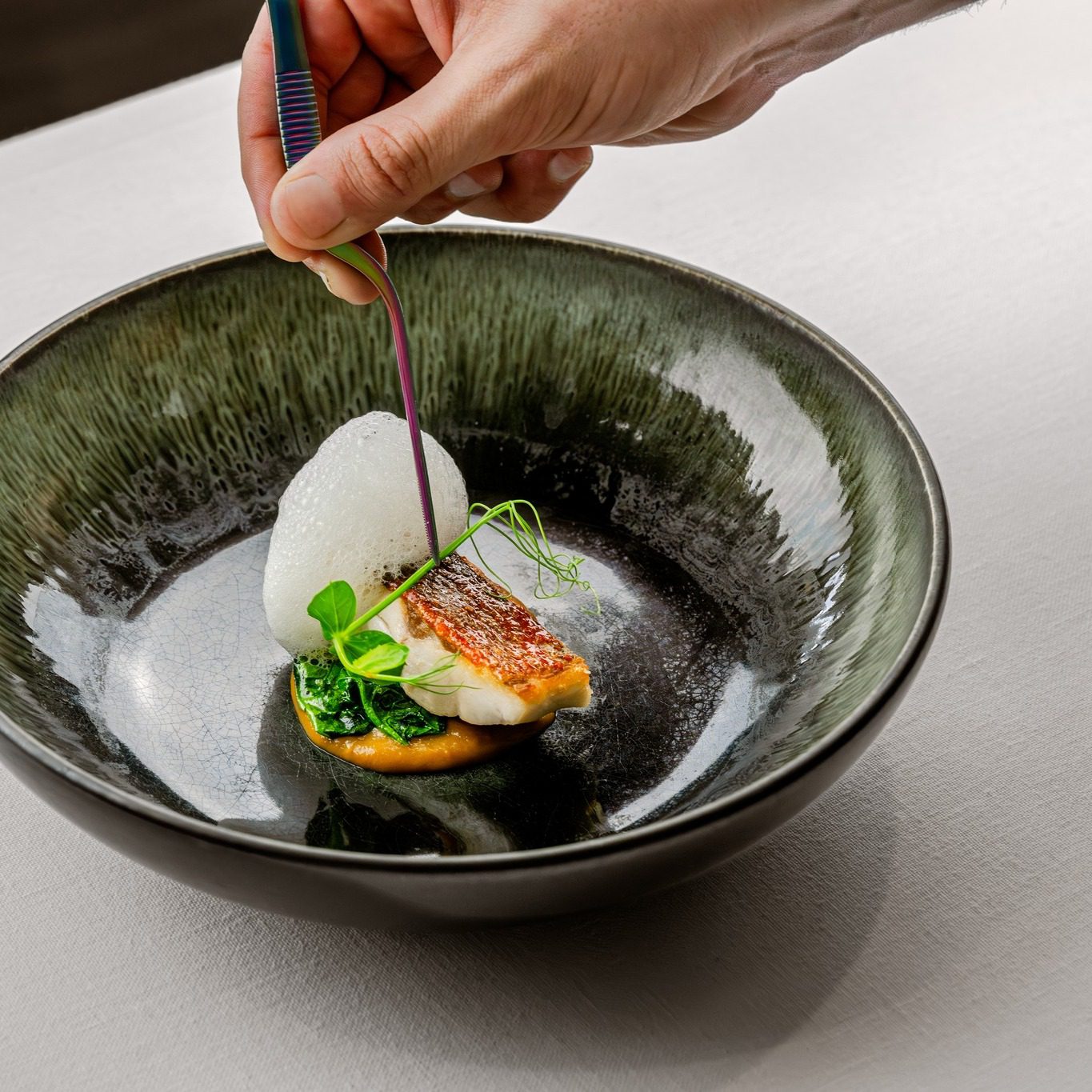2025’s biggest food movements go beyond recipes. Global food trends are influencing job opportunities, kitchen culture, menu design, what diners expect, and experience.
From plant-based innovation to cultural fusion, here’s your inside scoop on future food trends, what’s happening in the world’s top kitchens, and where your culinary skills can take you next.
What’s Shaping Global Menus in 2025
Plant-Based Innovation
Chefs and food brands are moving past basic meat substitutes. In 2025, dishes like pulled shiitake “meat” and mycelium bacon stood out at the National Restaurant Association (NRA) Show. High-end restaurants, including Eleven Madison Park, are also embracing plant-only tasting menus. Plant-based cuisine is thriving in both casual and fine dining.

Fusion Cuisine
Cookbooks and kitchens have always mixed flavors from around the world. Now, think of East African dishes with a New Jersey twist at Third Culture, or Lebanese flavors blended into vegan French pastries by chef Philip Khoury. These creative combinations are a big part of what defines future food trends today.
Zero-Waste Cooking
Zero-waste cooking is all about using every part of an ingredient. Nothing goes to waste. It includes practices like root-to-stem (using all parts of vegetables) and nose-to-tail (using the whole animal). Some restaurants are even going full nose-to-bin, where no food scrap is thrown away.
In Sydney, some chefs turn fish bones into noodles. In Mexico City, Baldío runs without trash bins, every leftover becomes a sauce, broth, or something new on the menu.
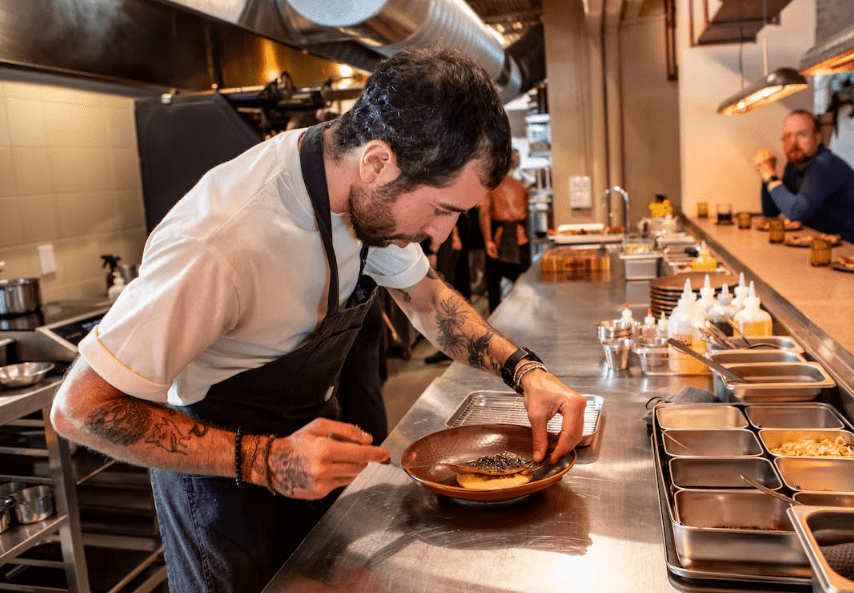
Fermentation & Preservation
Traditional techniques like pickling, fermenting, making bone broths, fish sauce, and preserved vinegars are making a strong comeback in modern kitchens. These methods, once seen as old-fashioned, are now valued for both their sustainability and their deep, complex flavors. It allows chefs to reduce food waste, extend shelf life, and create unique taste profiles using simple, natural processes.
From kimchi and kombucha to miso and sauerkraut (also called chucrut), these preserved ingredients are showing up on menus around the world. It’s no surprise that fermentation and preservation are a key part of global food trends 2025, blending tradition with innovation in every bite.
Hyper-Local Sourcing
Gathering from garden to table is trending up. Nearly 40% of diners seek restaurants sourcing locally and sustainably. Kitchens are partnering with farmers or growing onsite produce (including foraged ingredients) to create fresher, carbon-friendly menus.
Regional Spices & Heritage Flavors
Chefs around the world are bringing back flavors from their roots. At Quintonil in Mexico City, you’ll find heirloom herbs that reflect the country’s history. In Portland, some restaurants are serving plant-based Indigenous menus. And in Denmark, there’s even a new vegan chef program focused on keeping cultural food traditions alive in modern kitchens.
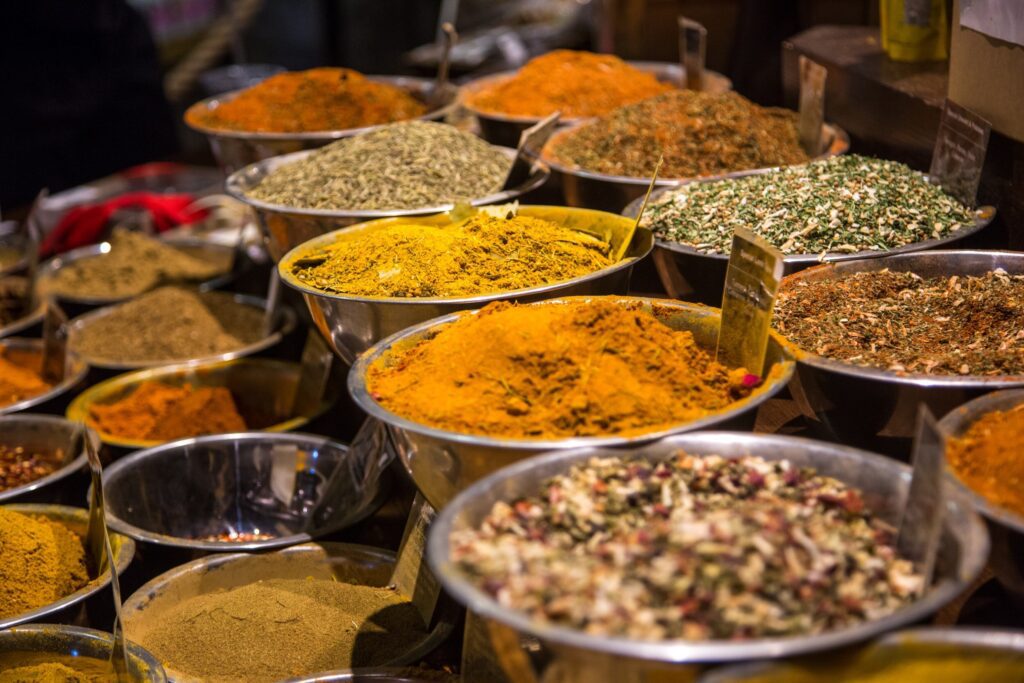
Why These Trends Matter for Your Culinary Career
Food trends are changing both what’s on the plate and who gets hired.
- Menus are evolving: Dishes are now influenced by culture, sustainability, and bold new flavors; from high-end tasting menus to creative street food.
- New job roles are growing: There’s rising demand for chefs who focus on sustainability, fermentation, foraging, and plant-based innovation.
- Global opportunities are expanding: Knowing these global food trends in 2025 can open doors to jobs in top restaurants, culinary schools, and food research labs around the world.
From Spain to Sydney:
Where Trends Come to Life
Discover what’s hot in different parts of the world, and how you can experience it firsthand through our international culinary programs.
Australia:
Indigenous Ingredients and Coastal Flavors
Native ingredients are in the spotlight. Chefs are using bushfoods like wattle seed, finger lime, among others, to reconnect with Indigenous flavors. Sustainable coastal cuisine and BBQ culture are also big. Fresh seafood, open-fire cooking, and outdoor meals are all part of the experience!
With our Hospitality and Culinary Trainee Program, or the Skilled Professional Program in Australia, you’ll work directly with local chefs who embrace these uniquely Australian styles. It’s a hands-on way to explore one of the world’s most diverse culinary landscapes.
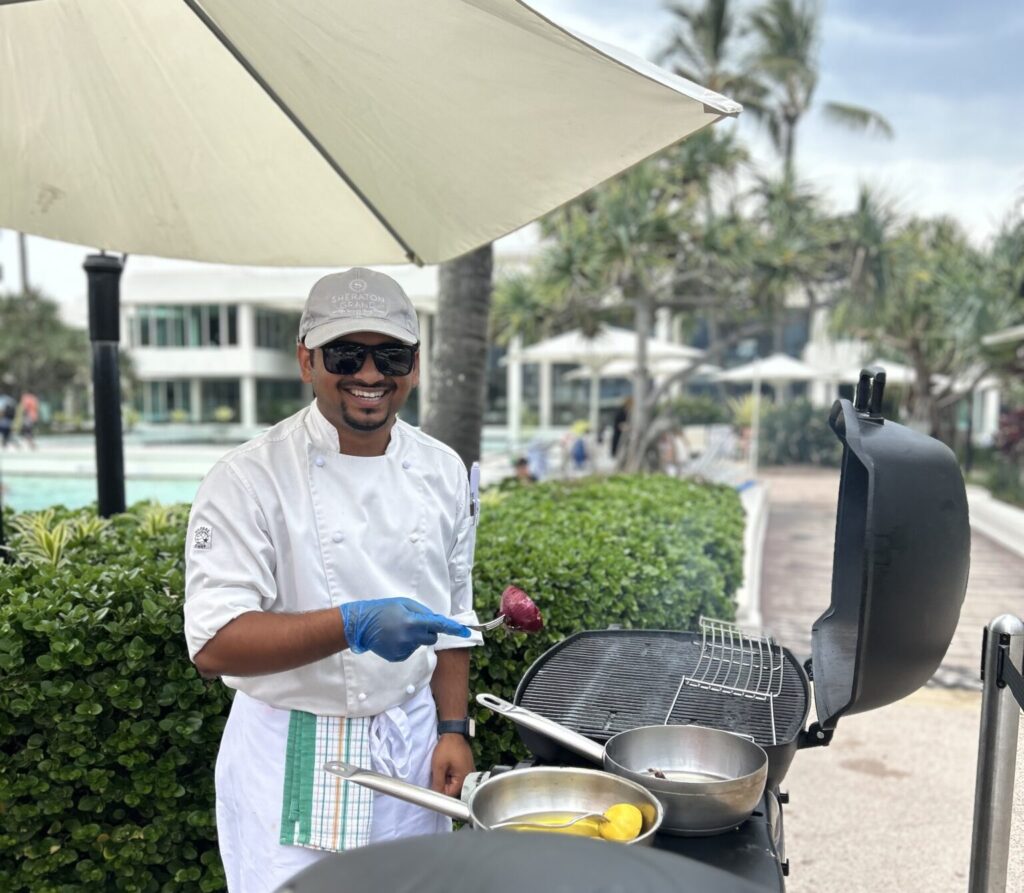
The program has greatly benefited my career growth. Through it, I had the opportunity to work at one of the most iconic hotels in Australia, which helped me develop many valuable skills. – Rajanya Dhananjay Joshi
Spain:
Tradition & Technique
Tapas and small plates continue to evolve, mixing bold creativity with traditional Spanish flavors. At the same time, regional cuisines like Basque and Catalan are making a strong comeback, and molecular gastronomy remains a major influence in top kitchens.
With our culinary placements in Spain, you can train in Michelin-starred restaurants and gain hands-on experience in high-level kitchens.
The best part? Housing and meals are included. So, you can fully focus on learning from top chefs and immerse yourself in Spain’s culture.

Canada:
Diverse, Local and Sustainable
Chefs in Canada are embracing Indigenous food traditions, using storytelling and ancestral ingredients. In cities like Toronto, Vancouver, and Montreal, multicultural fusion is everywhere. Think Korean poutine or Indian-inspired tacos! And there’s also a growing use of foraged and local ingredients from coast to forest.
Our Francophone Culinary Program in Canada puts you in the middle of this movement. You’ll gain real-world experience in a multicultural kitchen, sharpen your creativity and language skills, and bring fresh ideas back home.
United States:
Innovation Meets Regional Flavor
Tech-driven kitchens and food startups are reshaping how meals are made and delivered. Regional fusion is huge, like Southern soul food with an upscale twist, or Korean BBQ tacos in California. And farm-to-table continues to grow, with chefs focusing on local, seasonal ingredients.
Through our hospitality and culinary programs in the United States, you can train in top kitchens and innovative restaurants across the country. Whether you choose an internship or trainee role, you’ll gain valuable experience in one of the world’s most dynamic food scenes.
Chefs Defining Global Food Trends
When it comes to food trends in 2025, these chefs are leading the way. From fine dining to fusion, and sustainability to storytelling, these culinary innovators are redefining what is possible in the kitchen.
Salvador Alamilla – Mexico Lindo, Spain
Originally from Mexico and now shaking up the culinary scene in Cadiz, Spain, Chef Alamilla blends traditional Mexican flavors with Mediterranean techniques. His menus reflect the global food trends 2025, on regional heritage and unexpected fusion.
Timothy Wastell – Brae, Victoria, Australia
Chef Wastell focuses on native Australian ingredients and farm-to-table. His respect for the land and Indigenous food knowledge makes him a standout in Australia’s move toward bushfoods and sustainable coastal cuisine.
Current techniques on coastal cuisine are especially important for those training in Melbourne, Sydney, or the Gold Coast through our Alliance Abroad programs.
Karyn Tomlinson – Myriel, Minnesota
A leader in sustainable and heritage-based cooking, Karyn champions nose-to-tail practices and hyper-local sourcing. Her work reflects a growing trend in U.S. kitchens.
Her influence can be seen in places like Chicago, Denver, and Ohio, where our participants train toward thoughtful, seasonal, and waste-conscious menus.
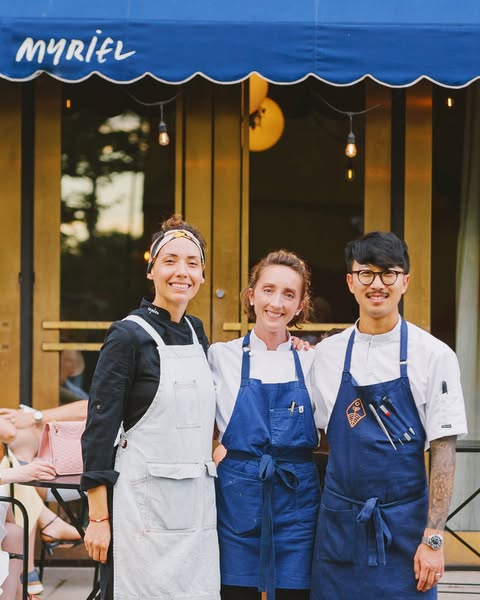
Other Chefs to Follow in 2025
There are many other chefs around the world who are changing the way we cook and eat. Anne-Sophie Pic, one of the most celebrated women in the culinary world, is known for her beautiful dishes that mix tradition with creativity.
Jungsik Yim is a top chef in modern Korean fine dining. His dishes show how traditional flavors can be presented in new creative ways.
In Bangkok, Pichaya “Pam” Soontornyanakij is getting global attention for her mix of Thai cooking and international influences. And in Los Angeles, Jon Yao brings Taiwanese flavors to life in a modern, personal way at his restaurant, Kato.
In New York, Lee Hanson and Riad Nasr serve French-style food with bold American flavors at Frenchette, showing how mixing regional styles can feel fresh and exciting.
These chefs are a big part of future food trends. They show how food can be creative, personal, and rooted in culture.
Keep Exploring What’s Next
Following trendsetting chefs help aspiring culinary professionals like you, stay inspired and informed, with more ideas and paths to follow. And through our global programs, you don’t just read about these future food trends, you get to live them! You get to train alongside experts and bring new flavors and techniques to your own career.
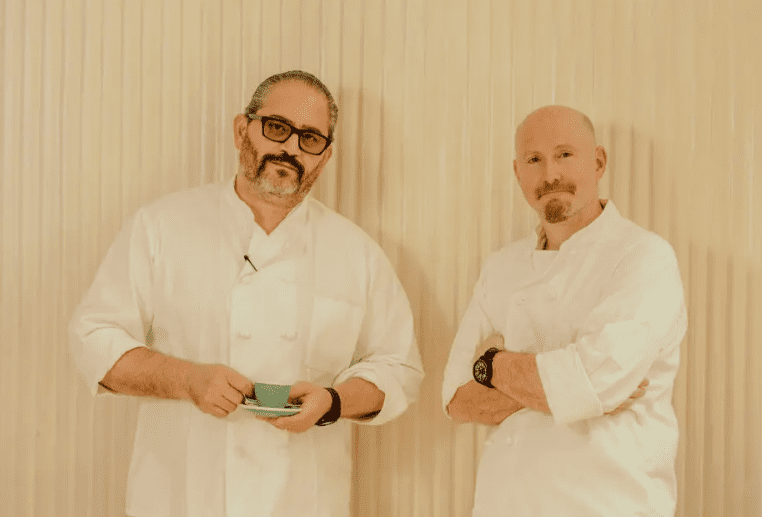
Real Kitchens. Real Experience.
At Alliance Abroad, we help aspiring chefs and hospitality professionals like you, get real experience, grow their skills, and explore new cultures. All while staying in the loop with global food trends and what’s shaping the future of food around the world.
Whether you join an internship, trainee role, or our skilled professional program, here’s what you can expect:
- Guaranteed Hospitality & Culinary Placements
- Resume & Interview Preparation
- Personalized Training Plans
- Program Preparation & Visa Guidance
- 24/7 Support While Abroad
Your Support Network, Wherever You Go
We keep you inspired, informed, and connected every step of the way. Here are a few extra tools to help you make the most of your experience:
- Blog & Stories: Hear from participants around the world and stay up to date on the latest culinary and hospitality trends.
- Events & Fairs: Find out what’s happening near you, from local info sessions, and cultural events, to international recruitment fairs.
- Social media: Follow us @allianceabroadgroup for job updates, insider tips, and behind-the-scenes moments.
- YouTube Channel: Watch real stories, meet host employers, and explore our placements in action through videos made to help you feel more prepared.

Train Where the Trends Are Happening
Food trends are happening right now in kitchens around the world. And the best way to learn them? By living them. Whether it is in Spain, Australia, Canada or the U.S., real-world experience is the fastest way to grow your culinary career.
And we’ll help you get there! From guaranteed placements to ongoing support, we help you train, travel, and thrive.
Let’s turn your culinary goals into reality.
